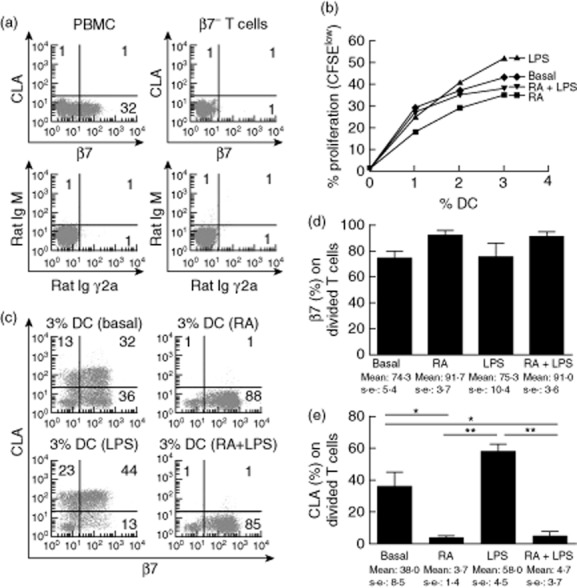Fig. 5.

Retinoic acid (RA) conditioned dendritic cells (DC) maintain their decreased stimulatory and gut-homing imprinting capacity on β7− T cells in the presence of lipopolysaccharide (LPS). (a) β7-negative T cells were enriched from total peripheral blood mononuclear cells (PBMC), as confirmed when compared with the isotypes. (b) β7-negative T cells were used to assess the stimulatory capacity and (c) homing imprinting capacity of DC conditioned previously with RA (24 h, 10−6 M), LPS (24 h, 0·1 μg/ml), RA (2 h, 10−6 M) and subsequent LPS (22 h 0·1 μg/ml) or in complete medium (basal). β7 and cutaneous lymphocyte-associated antigen (CLA) expression were determined on stimulated [5,6-carboxyfluorescein diacetate succinimidyl ester (CFSE)low] T cells. (d) One-way repeated-measures analysis of variance (anova) corrected for multiple comparisons was applied on pooled data from three independent experiments. P-value below 0·05 was considered statistically significant; *P < 0·05; **P < 0·01.
